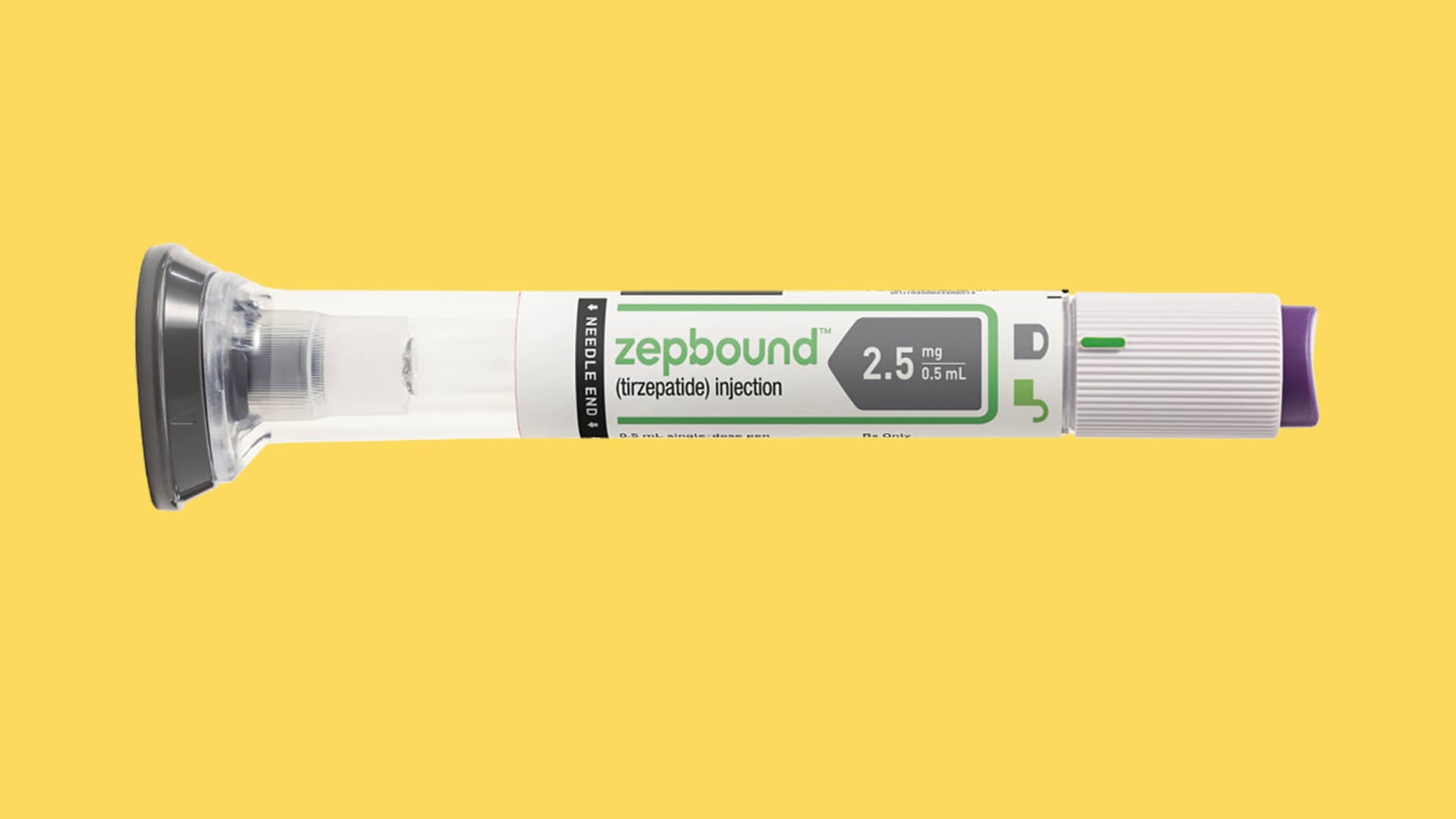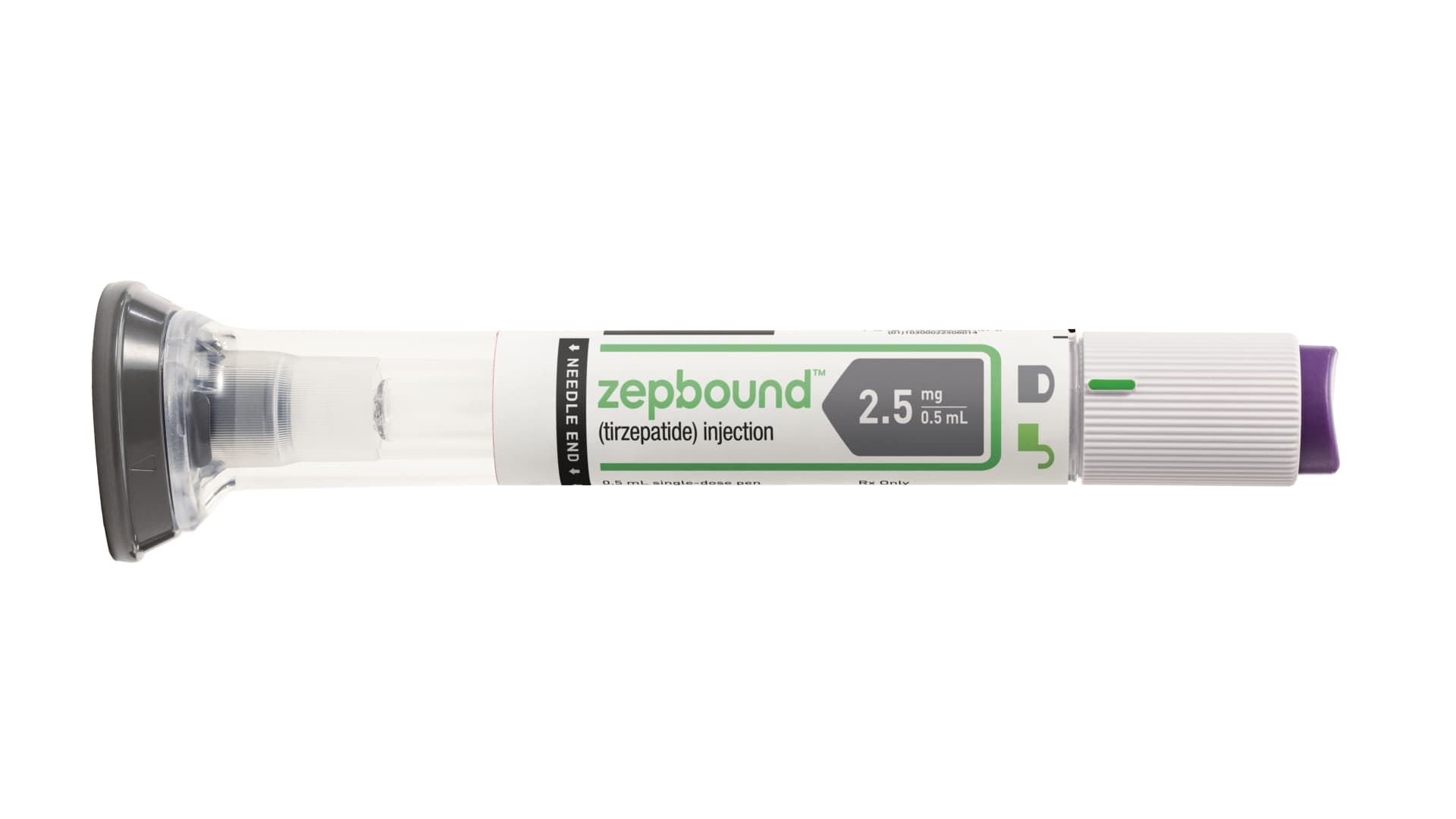Let’s face it—Adderall and Zepbound have been the talk of the town in the world of focus, productivity, and mental health. If you’ve ever wondered what these stimulants are all about, you’ve landed in the right place. Whether you’re a student cramming for exams or an adult trying to manage ADHD symptoms, understanding Adderall and Zepbound is crucial. So, buckle up, because we’re about to break it down for you in a way that’s easy to digest but packed with valuable info.
Now, you might be thinking, "What’s the big deal about Adderall and Zepbound?" Well, here’s the scoop: these medications are designed to help people with ADHD (Attention Deficit Hyperactivity Disorder) stay focused, but they’ve also gained popularity among those looking for a productivity boost. From college campuses to corporate offices, these pills have sparked curiosity—and some controversy. In this article, we’ll dive deep into what they are, how they work, and the potential risks involved.
Before we jump into the nitty-gritty, let’s clear something up. While Adderall and Zepbound are both stimulants, they’re not the same thing. They have different mechanisms of action, uses, and side effects. Understanding the differences is key to making informed decisions about your health. So, grab your favorite drink, and let’s get started!
What Are Adderall and Zepbound?
Alright, let’s start with the basics. Adderall and Zepbound are two medications that fall under the category of central nervous system (CNS) stimulants. These drugs are primarily prescribed to treat ADHD and, in some cases, narcolepsy. But what exactly makes them tick?
Adderall is a combination of amphetamine and dextroamphetamine. It works by increasing the levels of certain chemicals in the brain, like dopamine and norepinephrine, which help improve focus and attention. Zepbound, on the other hand, is a newer medication that contains lisdexamfetamine. It’s metabolized in the body to become dextroamphetamine, making it a bit more gentle on the system compared to traditional amphetamines.
Key Differences Between Adderall and Zepbound
So, what sets Adderall and Zepbound apart? Here’s a quick rundown:
- Unmasking The Mystique Of Sophia Rain In The Spiderman Universe
- Discovering Wissam Al Manas New Wife A New Chapter In His Life
- Adderall is an immediate-release or extended-release medication, while Zepbound is only available in extended-release form.
- Zepbound is often considered less prone to abuse because it’s not as fast-acting as Adderall.
- The side effects can vary slightly, with Zepbound potentially causing less jitteriness and irritability.
But don’t let these differences fool you—both medications are powerful and should be used only under the guidance of a healthcare professional.
How Do Adderall and Zepbound Work in the Brain?
Now, let’s get scientific for a moment. Both Adderall and Zepbound work by affecting neurotransmitters in the brain. Adderall increases the release of dopamine and norepinephrine, which helps improve attention and reduce impulsivity. Zepbound, as we mentioned earlier, is converted into dextroamphetamine in the body, producing similar effects but with a slower onset.
Think of it like this: your brain is like a city with millions of roads. Dopamine and norepinephrine are like traffic signals that keep everything running smoothly. When these signals are weak or out of sync, it can lead to ADHD symptoms. Adderall and Zepbound act like traffic cops, helping to regulate the flow and keep things on track.
Understanding the Mechanism of Action
Here’s a deeper look at how these meds work:
- Adderall stimulates the release of dopamine, giving users a sense of reward and motivation.
- Zepbound’s delayed release mechanism ensures a steady supply of the active ingredient, making it ideal for long-term focus.
It’s fascinating how science has allowed us to harness the power of these chemicals to improve our daily lives. But as with anything powerful, there are risks involved.
Who Should Use Adderall and Zepbound?
Adderall and Zepbound are primarily prescribed for people diagnosed with ADHD. If you’ve ever struggled to focus, stay organized, or control impulsive behavior, these medications could be a game-changer. But here’s the catch: they’re not magic pills. They work best when combined with therapy, lifestyle changes, and a solid support system.
Narcolepsy patients also benefit from these stimulants, as they help combat excessive daytime sleepiness. However, using them without a proper diagnosis can lead to serious consequences. Always consult a doctor before considering these medications.
Are These Medications Right for You?
Here’s a checklist to help you decide:
- Have you been diagnosed with ADHD or narcolepsy?
- Are you willing to follow your doctor’s instructions carefully?
- Do you understand the potential side effects and risks?
If you answered “yes” to these questions, you might be a good candidate for Adderall or Zepbound. But remember, self-medication is a big no-no.
Side Effects and Risks
Let’s talk about the elephant in the room: side effects. Like any medication, Adderall and Zepbound come with their fair share of risks. Some common side effects include:
- Insomnia
- Appetite suppression
- Increased heart rate
- Headaches
- Moodyness or irritability
In rare cases, these meds can lead to more serious issues like cardiovascular problems or addiction. That’s why it’s crucial to use them responsibly and report any unusual symptoms to your doctor.
Long-Term Effects of Adderall and Zepbound
While these medications can be life-changing in the short term, their long-term effects are still being studied. Some research suggests that prolonged use may alter brain chemistry or increase the risk of substance abuse. It’s important to weigh the benefits against the risks before committing to these drugs.
Can Adderall and Zepbound Be Abused?
Here’s where things get tricky. Both Adderall and Zepbound have a reputation for being abused, especially among students and professionals looking for a quick fix. The euphoric “high” they can produce makes them attractive to those seeking a mental boost. But here’s the thing: abusing these meds can lead to serious consequences, including addiction, anxiety, and even psychosis.
It’s worth noting that Zepbound is considered less addictive than Adderall due to its slower release mechanism. However, that doesn’t mean it’s completely safe. Always stick to your prescribed dosage and avoid sharing your meds with others.
Signs of Abuse
Here’s what to watch out for:
- Taking higher doses than prescribed
- Crushing or snorting the pills
- Using them without a prescription
- Experiencing withdrawal symptoms when not using them
If you or someone you know is struggling with stimulant abuse, don’t hesitate to seek help. There are resources available to support you through recovery.
Alternatives to Adderall and Zepbound
Not everyone responds well to Adderall or Zepbound. Fortunately, there are other options out there. Non-stimulant medications like Strattera or Intuniv might be worth exploring. Additionally, lifestyle changes such as regular exercise, a balanced diet, and mindfulness practices can complement medication and improve overall well-being.
It’s all about finding what works best for you. Every brain is unique, and what works for one person might not work for another. Always discuss your options with your healthcare provider to ensure you’re making the right choice.
Natural Ways to Boost Focus
Here are some natural alternatives to consider:
- Meditation and mindfulness exercises
- Getting enough sleep
- Staying hydrated
- Eating brain-boosting foods like nuts, fish, and berries
These simple habits can make a big difference in your focus and productivity without the need for medication.
Expert Insights on Adderall and Zepbound
According to a study published in the Journal of Clinical Psychiatry, CNS stimulants like Adderall and Zepbound are effective for managing ADHD symptoms. However, the same study warns about the potential for misuse and the importance of proper monitoring. Experts emphasize that these medications should be part of a comprehensive treatment plan, not a standalone solution.
Dr. Jane Smith, a renowned psychiatrist, adds, “While Adderall and Zepbound can be incredibly helpful for those with ADHD, they require careful management. Patients should never view them as a shortcut to success.”
Trusting the Experts
When it comes to mental health, trust is key. Look for healthcare providers with a strong track record in treating ADHD and related conditions. Ask questions, seek second opinions, and don’t be afraid to advocate for yourself.
Conclusion: Making Informed Choices
So, there you have it—a deep dive into Adderall and Zepbound. These medications can be powerful tools for managing ADHD and narcolepsy, but they come with responsibilities. Always use them as directed, stay informed about potential risks, and prioritize your overall well-being.
Here’s a quick recap:
- Adderall and Zepbound are CNS stimulants used to treat ADHD and narcolepsy.
- They work by increasing dopamine and norepinephrine levels in the brain.
- Both meds come with side effects and risks, so use them responsibly.
- Abuse can lead to serious consequences, so stick to your prescribed dosage.
- There are alternatives, both medical and natural, to consider if these meds aren’t right for you.
Now it’s your turn. Share your thoughts in the comments below, and don’t forget to spread the word by sharing this article with others who might find it helpful. Remember, knowledge is power—and when it comes to your health, being informed is the best thing you can do for yourself.
Table of Contents
- What Are Adderall and Zepbound?
- Key Differences Between Adderall and Zepbound
- How Do Adderall and Zepbound Work in the Brain?
- Who Should Use Adderall and Zepbound?
- Side Effects and Risks
- Can Adderall and Zepbound Be Abused?
- Alternatives to Adderall and Zepbound
- Expert Insights on Adderall and Zepbound
- Conclusion: Making Informed Choices
- Molly Noitt A Journey Through Her Life And Career
- Unmasking The Mystique Of Sophia Rain In The Spiderman Universe


